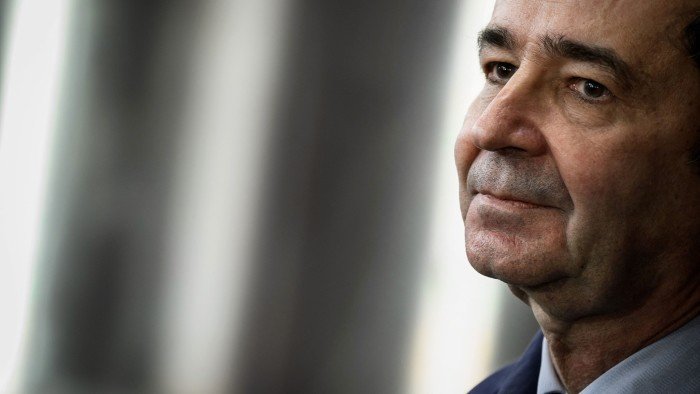Unlock the Editor’s Digest for free
Roula Khalaf, Editor of the FT, selects her favourite stories in this weekly newsletter.
EDF’s new boss is conducting a portfolio review that could lead to the French energy group selling some assets, as he seeks to meet government demands to focus on building new nuclear reactors in France.
Bernard Fontana has told insiders that he wanted to assess which assets were not profitable or did not fit with the state-owned group’s strategic priorities, according to several people with knowledge of the situation.
Fontana, who took over as chief executive of the state-owned group last month, told the people that sales could come after the review, although he has not yet concluded which parts of the business should be sold off.
The state “has said that we have to make the new nuclear programme in France a success, and exploit the current nuclear centres. For the rest, if there aren’t the means, we’ll have to arbitrate”, said one of the people.
The review comes after Fontana replaced Luc Rémont, who repeatedly clashed with the government over strategy, and was forced out in March after less than three years in the job.
EDF is responsible for operating France’s fleet of 57 reactors, as well as nuclear plants in the UK.
Its other assets and subsidiaries include the construction engineering division Framatome — of which Fontana was previously CEO — renewable installations in France and across the world, Italian utility business Edison and services company Dalkia.
Several people familiar with EDF said Dalkia and Edison are among the business units that could be sold. Renewable assets, with the exception of EDF’s hydraulic power projects, could also be under consideration, the people said.
The portfolio review signals that Fontana is more aligned with the French government than his predecessor, the people said. One of them said Fontana is “trying to move on from conflict with government”.
Rémont clashed with ministers over his tough approach to negotiations regarding the funding mechanism for new reactors.
France is planning to build six so-called Evolutionary Power Reactor 2 models (EPR2), an upgraded technology of the EPRs under development at Hinkley Point C in the UK and in use at France’s newest nuclear reactor Flamanville 3.
He also failed to reach commercial agreements with industrial groups over energy supply, seen as critical to guaranteeing the competitiveness of French industry, while multiple people told the Financial Times that the former boss was opposed to selling large assets.
EDF declined to comment and referred to Fontana’s statement in parliamentary hearings ahead of his confirmation, where he said asset sales could be made to “free up room to make investments”. He added that EDF wanted to remain an integrated business.
“Bernard Fontana doesn’t have the same perspective as [Rémont]. I think he is ready to look from now on what assets he thinks are not absolutely necessary to EDF’s future,” said one of the people.
Still, the company’s aims could be complicated if it tries to sell assets during a difficult economic environment, potentially forcing it to offload some assets at deep discounts, especially in the the US where it has a number of offshore wind and solar projects.
Asset sales would also do little to meet the enormous costs of delivering the new EPR2 programme, people familiar with the business said. The government and EDF recently agreed a funding mechanism for the project, but the total cost is yet to be determined.
Building the EPR2s and meeting EDF’s other priorities such as guaranteeing low energy prices to consumers and industrial groups, and completing Hinkley Point make for a “complicated economic equation . . . unless someone has found a magic wand”, said one of the people.

